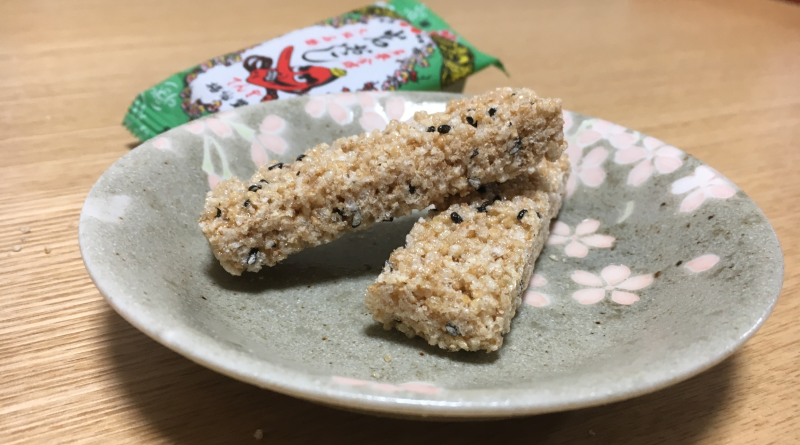
Okoshi, Osaka’s Traditional Confectionery
Today, places like Osaka offer also sorts of snacks, ranging from takoyaki-like snacks and cookies. One of Osaka’s most famous and traditional omiyage is okoshi. Specifically, iwaokoshi and awaokoshi, are iconic souvenirs from Osaka and are very popular with Japanese tourists.
Okoshi
What is Okoshi?
This snack dates back to the 8th century when people made treats out of smashed millet and syrup. A popular story says that Sugawara no Michizane tried okoshi in Osaka while journeying to Dazaifu.
He liked them so much he decided to take them with him as souvenirs. During Toyotomi Hideyoshi’s lifetime, okoshi became a popular gift as people thought it could bring good fortune because “okosu” can mean “set up” or “establish”.
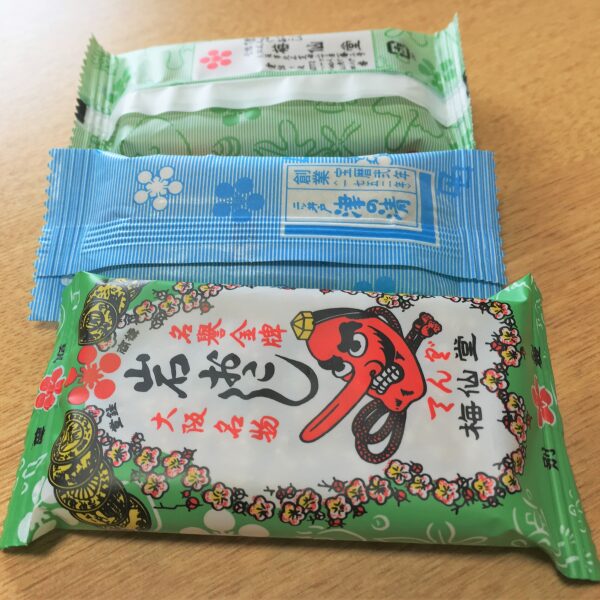
In the Edo Period, people began using rice to make okoshi, since there was a national rice market in Osaka. This kind of okoshi started to gain popularity throughout Japan and remains common today.
Famous Brands of Okoshi
There are three famous okoshi companies in Osaka: Amidaike Daikoku, Futatsuido Tsunose, and Baisendo. The flavors vary but only slightly from company to company.
There are mainly two types of okoshi: awaokoshi and iwaokoshi in Oaska. Both these okoshi are usually flavored with sesame seeds or ginger, but iwaokoshi is usually a little harder than awaokoshi. In general, traditional okoshi can be a bit dry, but they pair well with many different kinds of tea.
Tokyo also has a version okoshi they call kaminari-okoshi, available near Asakusa. These are softer than the ones in Osaka, which tend to be harder because they use rice that is crushed into much smaller pieces.
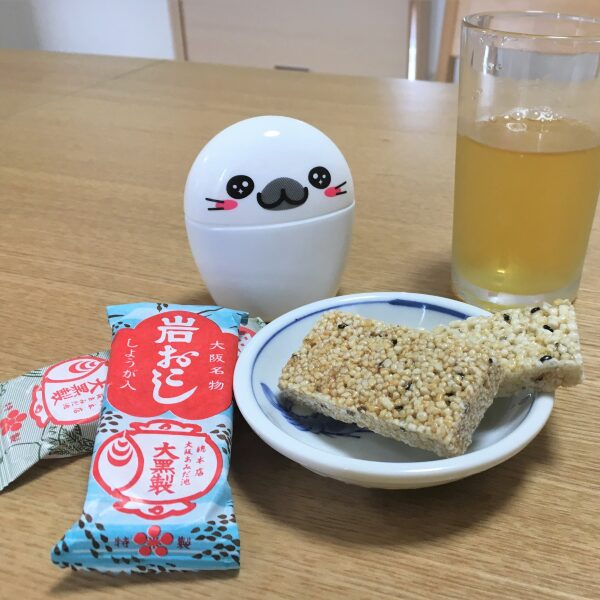
Futatsuido Tsunose, opened in 1752 in Dotonbori, have an awaokoshi with roasted peanuts that I am personally very fond of.
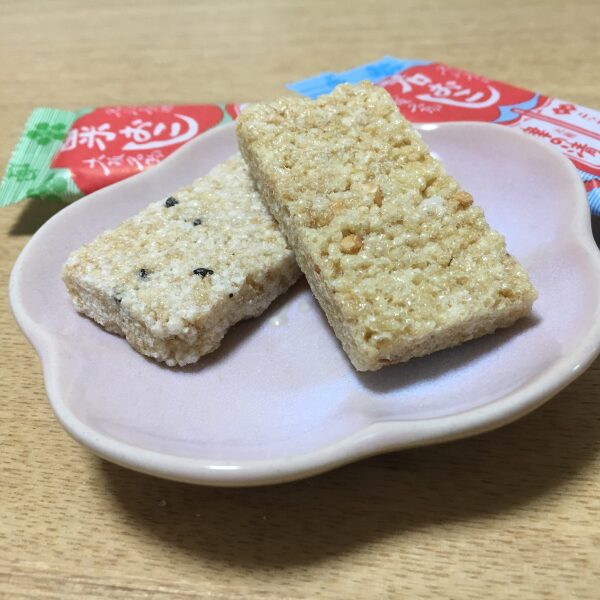
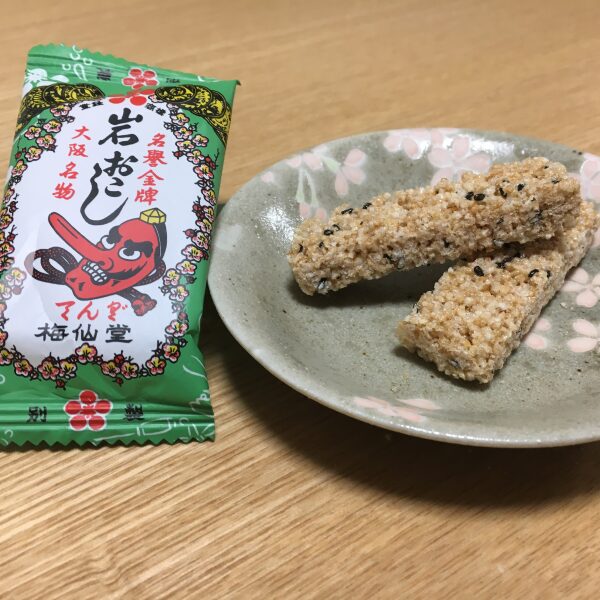
Today, many companies sell modern version of okoshi like ones called Pon Pon Ja Pon from Daikoku. There are often many different flavors to pick from, such as granola, chocolate, and green tea!
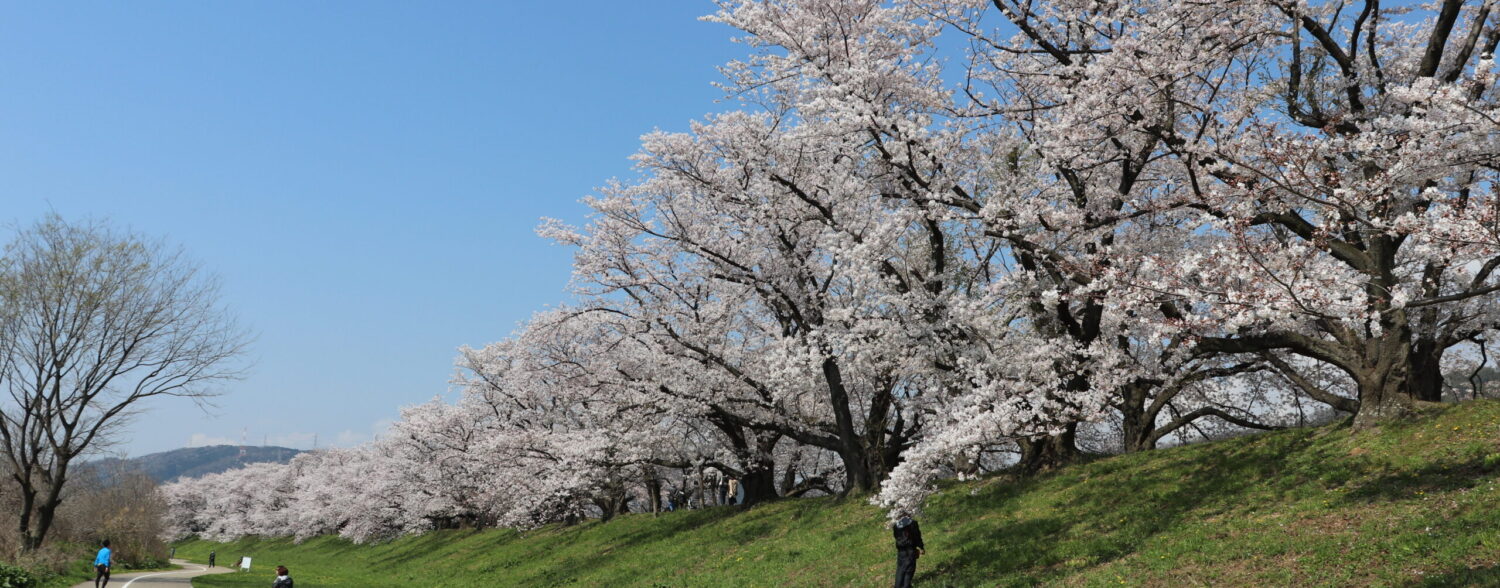
Leave a Reply